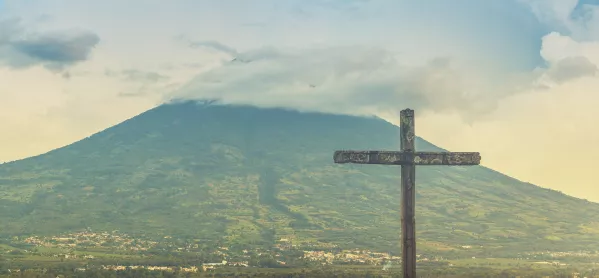Guatemala was recently described by UNICEF as “one of the worst places in the world to be a child” with the second highest child murder rate in the world, and it’s easy to understand why.
Here in Jocotenango, gangs are posing an increasing danger for our young people. Although being close to the tourist hotspot Antigua means police are slightly more effective here than elsewhere, our school district is still a violent place with frequent muggings and volatile groups of men.
We have students with family members in gangs. Others live in extreme poverty because their fathers are in prison for gang-related crimes. And many have relatives who have been attacked, abducted into brothels or even killed.
This has a profoundly damaging psychological effect on students: some of them become violent, withdrawn or even suicidal. For this reason, we run a safe house so we can act quickly and rescue those most at risk. Of course, we have to involve the police, but more often we have to take matters into our own hands. We have employed a full-time psychologist to help us deal with emotional and behavioral issues.
Thug life
But now our students have greater access to TV and the internet, the battle has become harder. Like all kids their age, our students watch music videos and violent material and we are noticing them change: from the way they walk, to the way their wear their pants (sagging low). The difference is that while kids in the Western world may mimic this “thug life”, our students can too easily seek it out.
We try to set our students on the road to a better future by bolstering their self-esteem, ambition and a sense of responsibility, and by diverting their attention away from the glamorization of gang culture and towards more meaningful pursuits. But this is becoming more difficult.
Most kids are brought up to believe they’ll never achieve more than menial labor, making them vulnerable to being enticed towards a life of petty crime, just for the thrill of it.
Pitifully low wages
Here, leaving school early means students are likely to earn a pitifully low wage and the need to supplement their income can lead them straight into the clutches of local gangs. Despite our efforts to keep students in regular attendance, encouraging them to move into higher education, and even providing a school for parents, we can’t escape the violence.
I’ve never been personally threatened, but after a particularly difficult situation with a pupil, my motorbike was stolen from outside the school. There’s a big vengeance culture here - there are even Facebook groups where you can hire hitmen to carry out a revenge attack for a fee. And as I write this, our safe house is occupied by yet another student in terrible danger. I can only continue to teach and support my students, and hope and pray that we can give them a better future.
Jorge Castillo works at The School of Hope in Jocotenago, Guatemala is owned and run by UK based charity Education for the Children (EFTC). Read more about the school here.
Want to keep up with the latest education news and opinion? Follow TES USA on Twitter and like TES USA on Facebook.




